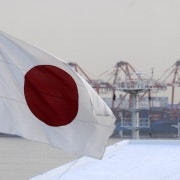Crisis and the making of a German Europe
In the end, the Cypriots swallowed the bitter medicine. Facing national humiliation and a bleak future many complain their small nation has been forced to succumb to the will of a larger, merciless power – Germany.
Newspapers in Cyprus have portrayed Angela Merkel, the German chancellor, as a Hun – and accused Wolfgang Schäuble, her finance minister, of talking like a “fascist”. They are echoing the anti-German sentiment that has become commonplace in Greece and Italy.
This Germanophobia is unfair. Behind all the shouting and the wrangling, German taxpayers will once again be funding the biggest single share of yet another eurozone bailout. It seems a bit harsh that Germany is extending loans of hundreds of billions of euros to its neighbours – only to be accused of neo-Nazism in return.
Yet growing German power – and growing resentment of that power – are now the main themes in European politics. This is a historic irony, given that the main purpose of the whole European project, from the 1950s onwards, has been to end for ever the idea that Germany is simply too powerful to coexist comfortably with its neighbours. The stock phrase – in Berlin, as much as in Paris or Brussels – was about the need for a “European Germany, rather than a German Europe”.
After the Cyprus crisis, however, it looks increasingly like this is a German Europe – because the direction of a continent in crisis is being shaped, above all, by the ideas and preferences of politicians and officials in Berlin.
It is true that the European Commission, the IMF and the European Central Bank took the lead in the Cyprus negotiations. But it was always clear that no deal could go through without the German government’s input and assent. The fact that the lead figure from the ECB throughout the crisis has been Jörg Asmussen, a German member of the bank’s executive board, rather than Mario Draghi, the Italian president, also served to put a German face on the crisis.
When they step back from the fray, German leaders must wonder how it came to this? How has a European project that was meant to end any notion of conflict between Germany and its neighbours led to a resurgence of anti-German feeling? And is the damage permanent?
A large part of the explanation is that the stakes are now so high that Germany can no longer be shy about asserting its national interests. The survival of the single European currency is in question and German taxpayers have had to contribute hugely to various bailout funds.
The Germans also have a clear and consistent analysis of the problem. They believe that fiscal profligacy or faulty business models lie at the heart of the crisis – and the solution is austerity, allied to structural reform. There are many who argue that this prescription is dangerous. But the anti-austerians have failed to come up with a set of alternative policies that is coherent enough to turn the intellectual tide.
But this is not just a story of German strength. It is also a tale of the exceptional weakness of the other European powers that, until recently, balanced German power. The governments of Spain and Italy are in financial distress – and enfeebled. Britain is not a member of the euro, and so is on the sidelines.
However, the most remarkable feature of the crisis is the almost complete absence of a powerful French voice at the table. From Jean Monnet to Jacques Delors, the French have always prided themselves on providing the intellectual leadership for the European project.
The notion that Europe should be driven forward by a Franco-German partnership was crucial to French thinking – and was reflected in former president Nicolas Sarkozy’s determination to form a close partnership with Merkel. The idea that Europe was being run by “Merkozy” was always a bit of an illusion – but at least it signalled a French determination to be at the centre of the action.
Under President François Hollande, however, any notion that France is playing an equal role to Germany has disappeared. Over Cyprus, even the Finns seemed to weigh more heavily in the debate than the French. Part of the problem is that Hollande has let it be known that he disapproves of Germany’s insistence of austerity but he has not proposed a coherent alternative. He has not placed himself at the head of an alliance of southern nations that could push back the Germans. But nor has he established a good working relationship with Merkel. French officials also no longer play the crucial role they once did at the heart of Europe. Following the retirement of Jean-Claude Trichet, a Frenchman no longer heads the ECB. Michel Barnier, the French EU internal market commissioner, is a bit of a lightweight.
Even German policy makers hope that all this is temporary. Once things get back to normal and new EU structures are in place, they think it may no longer be necessary for Germany to lead quite so overtly. But that is probably a pious hope. The eurozone crisis is far from being over and it is not clear what new EU structures will emerge at the end of it - or whether they would dilute or strengthen German power.
That leaves Germany holding the ring: writing the cheques, enforcing the rules and increasingly making them up, as well. That is a dangerous situation for Europe – and ultimately for Germany itself.
Copyright The Financial Times Limited 2013.













